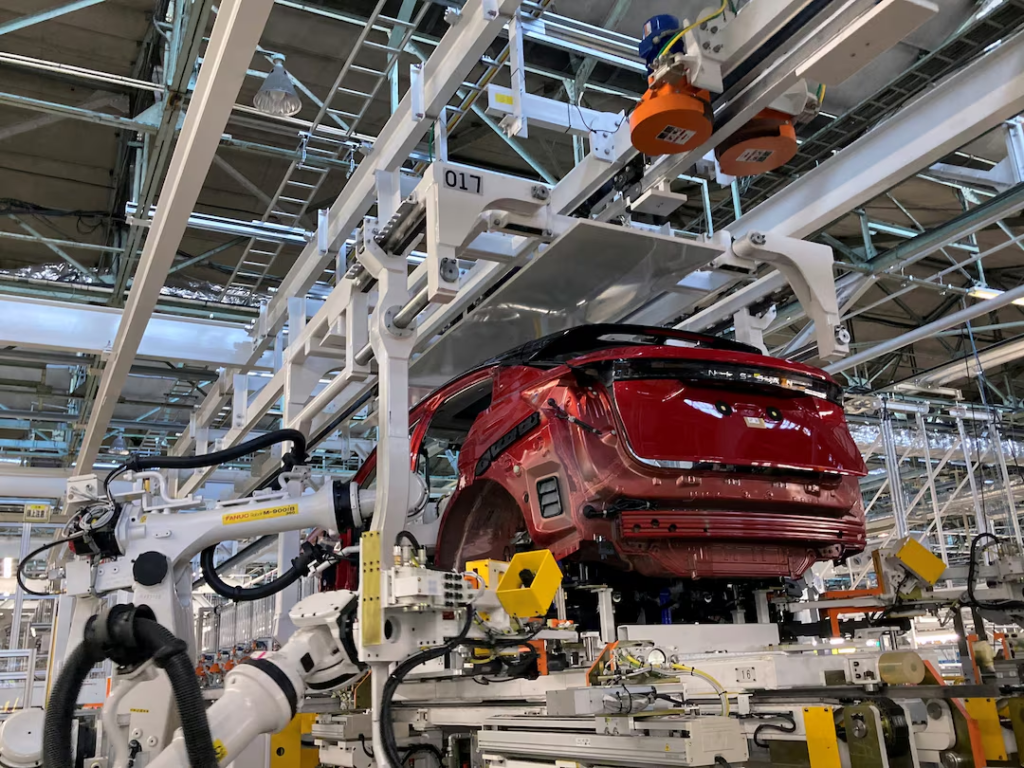Honda and Nissan, Japan’s second and third-largest automakers, are in talks to strengthen their collaboration, with a potential merger under consideration. The discussions come as both companies face growing pressure from China’s rapidly advancing electric vehicle (EV) manufacturers.

The proposed merger between Honda and Nissan could serve as a defensive strategy, as the Japanese automakers are struggling to compete against Chinese EV giants like BYD. Chinese firms have successfully captured the global auto market, particularly with innovative EVs and hybrid vehicles integrated with advanced software.
Declining Performance in China
Both Honda and Nissan have seen significant losses in China, the world’s largest car market. Honda recently reported a 15% drop in quarterly profits, impacted by declining sales in China, and has begun reducing its workforce there. Meanwhile, Nissan, already struggling, is planning to cut 9,000 jobs globally and reduce its manufacturing capacity by 20%.
Sanshiro Fukao, an executive fellow at the Itochu Research Institute in Tokyo, warns that the pace of innovation by Chinese EV makers has left little room for Japan’s automakers to continue with business-as-usual approaches.
Implications for Japan’s Economy
The Japanese automotive sector, which accounts for around 8% of the workforce and approximately 7% of the country’s GDP, is critical to the nation’s economy. The potential decline of the automotive industry would have far-reaching effects on Japan’s manufacturing sector as a whole.
Takumi Tsunoda, a senior economist at Shinkin Central Bank Research Institute, emphasizes that Japan’s economic future is closely tied to the automotive industry. If the auto sector struggles, it will significantly hinder the overall revitalization of Japanese manufacturing.
Shift to Digital and EV Innovation
Japan’s automotive sector has traditionally excelled in manufacturing techniques, notably Toyota’s lean production methods. However, the global shift toward EVs and smart cars, which focus heavily on software and digital features, has exposed a gap where Japanese automakers, including Honda and Nissan, have struggled to keep pace with Chinese competitors.
Toyota, the largest Japanese automaker, has been particularly vocal about the potential harm of an exclusive shift to EVs, arguing that it would result in significant job losses. Toyota’s strategy includes producing hybrids and hydrogen vehicles alongside EVs.
Potential Honda-Nissan Merger and Its Challenges
While merging could help Honda and Nissan pool resources, reduce costs, and increase their global competitiveness, it remains uncertain whether this strategy can enable Japan’s automakers to compete effectively in the EV space. Furthermore, there are concerns about the impact on local manufacturing and employment. Eikei Suzuki, a lawmaker from the ruling Liberal Democratic Party, noted that any merger should consider the effects on regional economies and jobs, especially in areas with Honda plants like Mie prefecture.
The Road Ahead
As Japan’s automotive industry grapples with the growing threat from Chinese EV makers, Honda and Nissan’s potential merger highlights the urgent need for innovation and adaptation. While the merger could strengthen their global competitiveness, it’s unclear whether it will be enough to keep up with the fast-changing automotive landscape dominated by digital-first, software-heavy vehicles.








